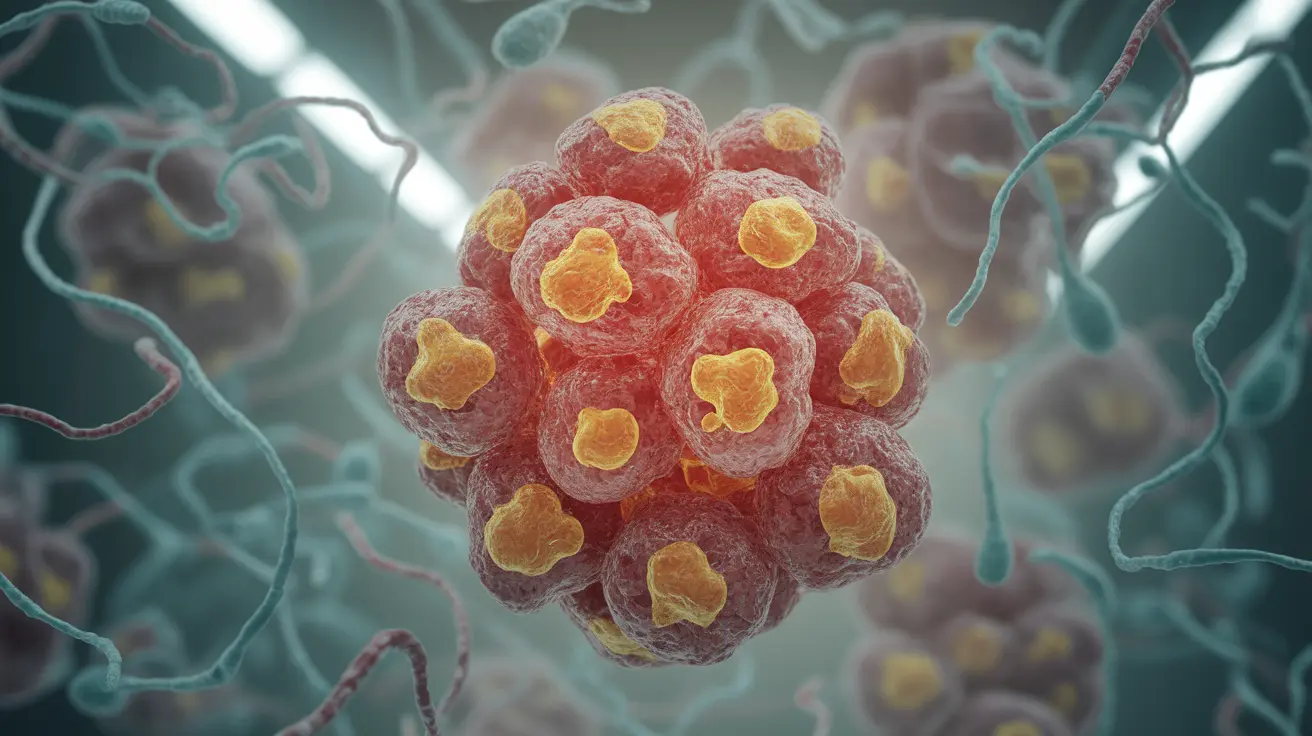Liver cancer is a complex disease that can arise from various factors, including genetics. Many people wonder about the role of heredity in liver cancer development, especially if they have a family history of the disease. This article explores the genetic aspects of liver cancer, common hereditary conditions that increase risk, and strategies for prevention and management.
Understanding the hereditary nature of liver cancer is crucial for those with a family history or genetic predisposition. While not all liver cancers are inherited, certain genetic factors can significantly increase one's risk. Let's delve into the details of how genetics play a role in liver cancer and what you can do to mitigate your risk.
The Hereditary Nature of Liver Cancer
Liver cancer itself is not directly inherited in most cases. However, certain genetic conditions and family history can increase an individual's risk of developing liver cancer. It's important to note that having a genetic predisposition doesn't guarantee you'll develop liver cancer, but it does mean you may need to be more vigilant about monitoring your liver health.
Family History and Liver Cancer Risk
Having a close family member (parent, sibling, or child) with liver cancer can increase your risk. This increased risk may be due to shared genetic factors or common environmental exposures within families. If you have a family history of liver cancer, it's essential to discuss this with your healthcare provider for appropriate screening and prevention strategies.
Common Genetic Disorders Linked to Liver Cancer
Several genetic disorders can significantly increase the risk of developing liver cancer. Understanding these conditions is crucial for early detection and management. Here are some of the most common genetic disorders associated with an elevated liver cancer risk:
Hereditary Hemochromatosis
This genetic condition causes excessive iron absorption and storage in various organs, including the liver. Over time, iron buildup can lead to liver damage and increase the risk of liver cancer. Regular monitoring and treatment to reduce iron levels can help manage this risk.
Wilson's Disease
Wilson's disease is a rare inherited disorder that causes copper to accumulate in the liver, brain, and other vital organs. This accumulation can lead to liver damage and potentially increase the risk of liver cancer. Early diagnosis and treatment are crucial for managing Wilson's disease and reducing cancer risk.
Alpha-1 Antitrypsin Deficiency
This genetic disorder affects the production of a protein that protects the liver and lungs. People with alpha-1 antitrypsin deficiency have an increased risk of liver disease, which can potentially lead to liver cancer. Regular monitoring and lifestyle modifications can help manage this condition.
Managing Genetic Risk Factors for Liver Cancer
If you have a genetic predisposition to liver cancer, there are several steps you can take to reduce your risk and maintain liver health:
Regular Screening and Monitoring
Work with your healthcare provider to establish an appropriate screening schedule. This may include regular liver function tests, imaging studies, and other diagnostic tools to detect any early signs of liver disease or cancer.
Lifestyle Modifications
Adopting a healthy lifestyle can significantly reduce your risk of liver cancer, even if you have a genetic predisposition. Key lifestyle changes include:
- Maintaining a healthy weight
- Limiting alcohol consumption
- Eating a balanced diet rich in fruits, vegetables, and whole grains
- Exercising regularly
- Avoiding smoking and exposure to toxins
Managing Related Conditions
If you have a genetic disorder that increases your liver cancer risk, proper management of that condition is crucial. This may involve specific treatments, dietary changes, or medications to control the underlying disorder and protect your liver.
Preventing Liver Cancer: Beyond Genetics
While genetic factors play a role in liver cancer risk, it's important to address other risk factors as well. Some key preventive measures include:
Hepatitis Prevention and Treatment
Chronic hepatitis B and C infections are significant risk factors for liver cancer. Vaccination against hepatitis B and early treatment of hepatitis infections can greatly reduce your risk.
Diabetes Management
People with diabetes have an increased risk of liver cancer. Proper management of diabetes through medication, diet, and lifestyle changes can help reduce this risk.
Limiting Alcohol Consumption
Excessive alcohol use can lead to liver damage and increase cancer risk. If you choose to drink, do so in moderation.
Frequently Asked Questions
Is liver cancer hereditary, and does having a family history increase the risk?
Liver cancer itself is not directly inherited, but certain genetic conditions can increase the risk. Having a family history of liver cancer can elevate your risk, possibly due to shared genetic factors or environmental exposures. It's important to discuss your family history with a healthcare provider for appropriate screening and prevention strategies.
What are the most common genetic disorders that increase the risk of developing liver cancer?
The most common genetic disorders linked to increased liver cancer risk include hereditary hemochromatosis, Wilson's disease, and alpha-1 antitrypsin deficiency. These conditions affect liver function and can lead to liver damage over time, potentially increasing cancer risk.
How can conditions like hereditary hemochromatosis be treated to reduce the risk of liver cancer?
Hereditary hemochromatosis can be managed through regular phlebotomy (blood removal) to reduce excess iron levels, dietary modifications to limit iron intake, and regular monitoring of iron levels and liver function. Early diagnosis and consistent treatment can significantly reduce the risk of liver damage and subsequent cancer risk.
Can liver cancer be prevented by managing risk factors such as hepatitis infection and diabetes?
Yes, managing risk factors can significantly reduce liver cancer risk. This includes getting vaccinated against hepatitis B, seeking early treatment for hepatitis infections, properly managing diabetes through medication and lifestyle changes, and addressing other risk factors like alcohol consumption and obesity.
What lifestyle changes can help reduce the risk of liver cancer, especially for those with a family history?
Key lifestyle changes that can help reduce liver cancer risk include maintaining a healthy weight, limiting alcohol consumption, eating a balanced diet rich in fruits and vegetables, exercising regularly, avoiding smoking, and minimizing exposure to environmental toxins. Regular health check-ups and liver function monitoring are also crucial, especially for those with a family history or genetic predisposition.
Understanding the genetic aspects of liver cancer can empower individuals to take proactive steps in managing their health. While genetic factors play a role, lifestyle choices and proper management of related conditions are equally important in reducing liver cancer risk. If you have concerns about your genetic risk for liver cancer, consult with a healthcare professional for personalized advice and screening recommendations.




